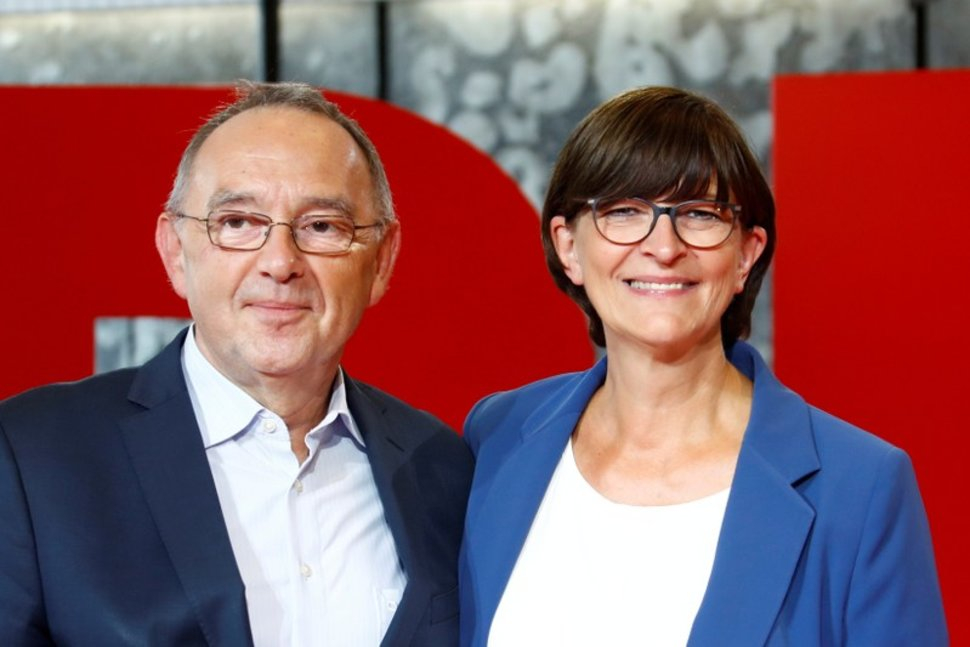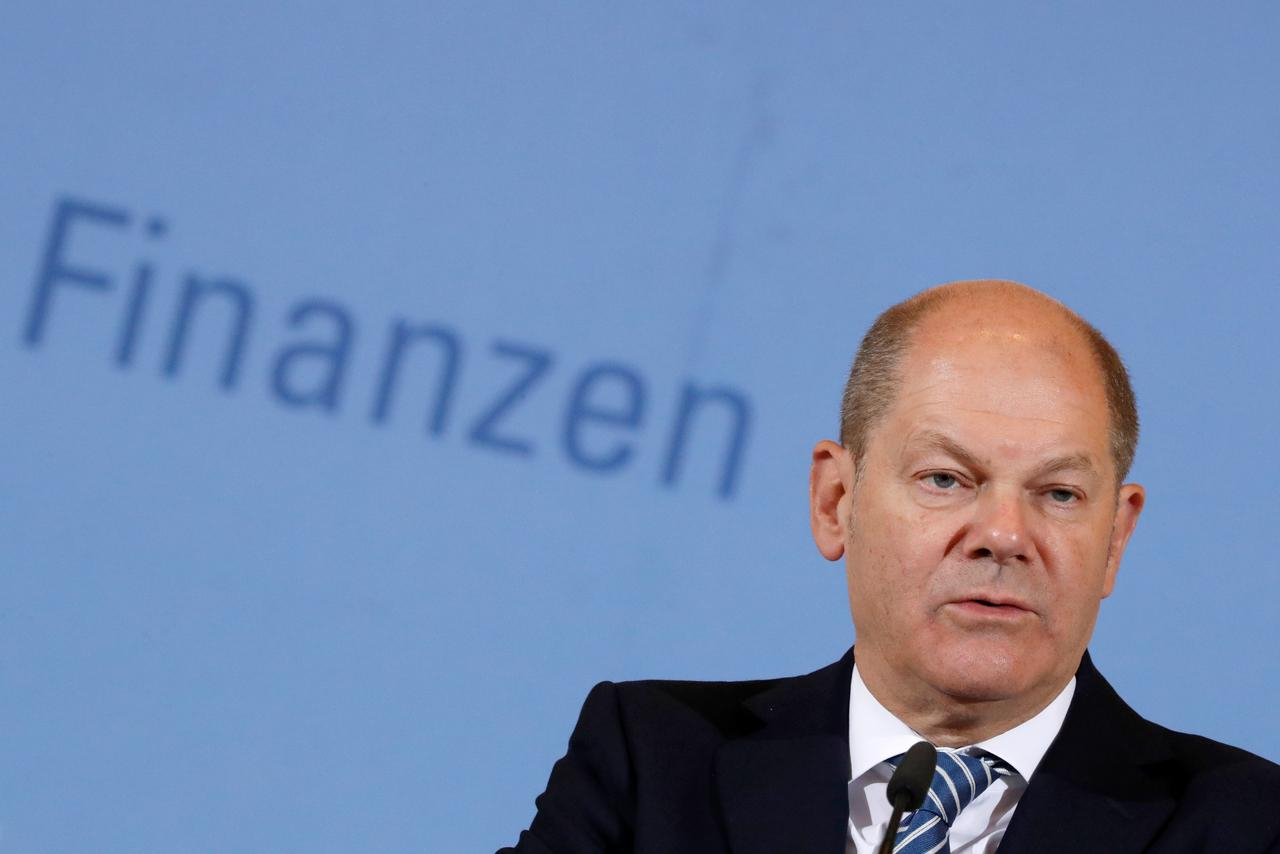The future of German Chancellor Angela Merkel's government hung in the balance on Saturday as her junior coalition partners, the Social Democrats (SPD), prepared to announce the result of their leadership election.
The favorite to win is a leadership duo composed of Finance Minister Olaf Scholz and his running mate Klara Geywitz, who both support the center-left SPD staying in coalition with Merkel's center-right Christian Democrats (CDU) until 2021.
The coalition deal was struck only last year following inconclusive parliamentary elections in 2017.

Norbert Walter-Borjans and Saskia Esken, top candidates for the leadership of Germany's Social Democratic Party, in Saarbruecken, Germany, September 4, 2019. /Reuters Photo
Norbert Walter-Borjans and Saskia Esken, top candidates for the leadership of Germany's Social Democratic Party, in Saarbruecken, Germany, September 4, 2019. /Reuters Photo
The challengers
The challengers are Saskia Esken and Norbert Walter-Borjans, who have been highly critical of the coalition and are on the left wing of the party.
The result of a vote by the party's 426,630 members is being announced ahead of the party conference in Berlin on December 6-8 where delegates will vote on whether or not to stay in the coalition.
The leadership race was triggered by the departure of the SPD's previous leader, Andrea Nahles, after the party's poor showing in European Parliament elections.
In the latest opinion polls, the SPD, which came second in the 2017 federal election, is vying for third place with the far-right AfD, behind the CDU and the Greens.
In an attempt to shake up its image, the SPD this year is choosing a male-female duo for the first time since its founding in 1890 - a model copied from the Greens.
Victory for Scholz and Geywitz would be a relief for Merkel, who has been chancellor for 14 years and plans to stay on until the end of her mandate in 2021.

German Finance Minister Olaf Scholz holds a news conference in Berlin, Germany, October 30, 2019. /Reuters Photo
German Finance Minister Olaf Scholz holds a news conference in Berlin, Germany, October 30, 2019. /Reuters Photo
SPD 'in a bad state'
Analysts say Scholz, who also serves as deputy chancellor, lacks charisma and has been dubbed "Scholzomat" for his propensity to speak like an automaton, but is loyal.
Esken and Walter-Borjans have instead been critical of the government's "black zero" policy of not taking on new debt and its perceived timidity in tackling climate change.
They enjoy the support of the youth wing of the party and of the German branch of Fridays for Future -- the environmental movement set up by Swedish teen Greta Thunberg which has a large following in Germany.
But they lack the public name recognition that could translate into electoral success further down the line.
Whatever the result on Saturday, the SPD's problems will not be resolved while the party is "in a bad state," according to an editorial in the Spiegel weekly.
The SPD "offers no long-term political direction on the way in which it wants the society of tomorrow to function... on what the world of work will look like," said Gero Neugebauer, a researcher at the Free University of Berlin.
Cut off from its "social roots," the party seems "too rarely an alternative" to Merkel's CDU, he told AFP.
"The SPD cannot renew itself unless it is in opposition and has new people," said fellow political expert Klaus Schroeder.
At the next elections in 2021, Schroeder predicts a coalition between the CDU and the Greens will win power.
(Input from AFP)